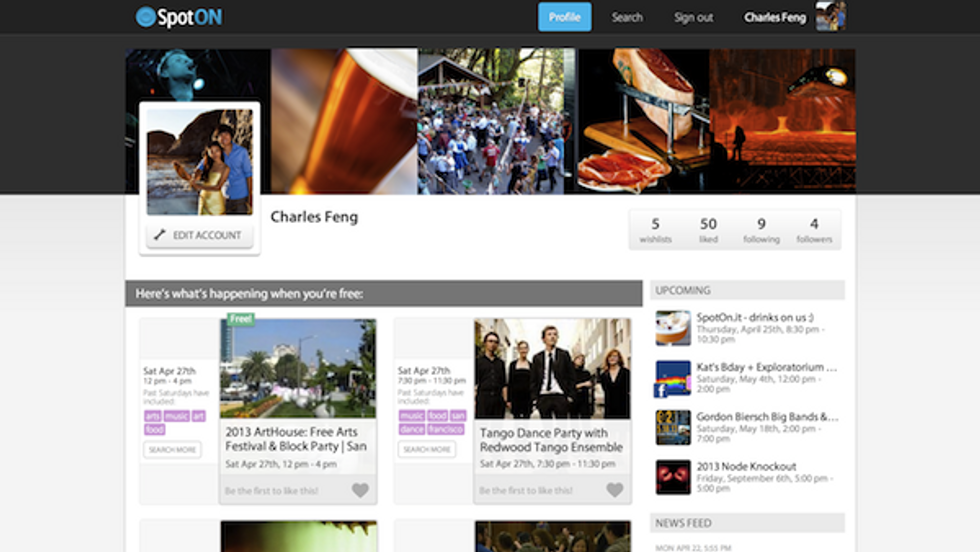SpotOnis a new time-based search and discovery service that alerts you to events and activities that will be occurring during the empty spots in your schedule.
How does it do that?
It’s built on top of Google Calendar, so it can analyze when you are busy and when you are free, and make suggestions accordingly.
“We have over 70,000 activities in the Bay Area,” says co-founder and CEO Smita Saxena, “and 250,000 in five cities nationally. (The others are New York, Chicago, Boston and Austin)
SpotOn, which just launched last week after ten months or so in private beta, is based on machine learning, like Pandora and numerous other apps that get smarter the better they get to know your interests.
So it requires a two-way communication process – the more you use it and teach it what you like and don’t like, the more efficient personal assistant it can become for your social life.
I asked Saxena about the potential vulnerability of building the service on top of another platform, in this case Google Calendar (and Outlook as well), given Zynga’s well-known troubles from being so closely tied-in to Facebook.
“Calendars are not a Facebook-type issue because they are not the best monetized feature,” she replied. “We deliver value where there's not much money being made.”
In other words, because Facebook is constantly trying to optimize its own revenue streams, its frequent changes on the backend give the Zyngas of the world the equivalent of migraine headaches trying to keep up.
As for who the early adopters were at SpotOn during beat testing, one category that surprised the team was moms of young kids.
“So we focused on parents of young kids, mainly moms at first," says Saxena. “We found that over the first month 70 percent of our users went to one of the events we pushed to them. We sent out generally about three per week, on average.”
The service has built out its databases to serve everyone now, parent or not. What I find most fascinating if its concept of time-based search – particularly when focused on the empty parts of your day.
Part of the way the algorithm learns your habits and desires is through wish lists you can create.
As for the potential audience for SpotOn, there are an estimated 750 million calendar users worldwide, close to two-thirds using Outlook, most of the rest on Google, with a smattering of minor players.
As is the case for any computer-learning app, there has to be a mix of human beings and algorithms behind this startup.
“On a monthly basis we make about 250,000 API calls for our first 1000 users,” says Saxena. “We can go back up to three years of your past calendar entries to help understand your habits better. Our crawler finds pages of activity sites all over the web. We call those results Scraps. With about 65 percent of the scraps, we can recognize them as events right away. The rest are parsed by people who verify they are events, add photos, and format the text.”
***
Frequent readers of this blog may notice a leitmotif running through my coverage is to highlight some of the extraordinary women active in technology. Smita Saxena certainly deserves a call-out in this regard.
Her Hindu family origins are in northern India, but she grew up in Saudi Arabia until the age of 16, when she came to the states, to study math, first at UCLA, next at the University of Toronto, and finally at Stanford.
"I learned coding somewhere along the way," she says modestly.
She is fluent in three languages – Urdu, Arabic, and English.
Her co-founder, Charles Feng, also a Stanford grad, and their company came through the StartX accelerator program down on The Farm we’ve covered here at 7x7.
The site is written in html5, and renders beautifully on tablets. Saxena says developing native mobile apps is, of course, on the future product roadmap.
Note: SpotOn can be found at https://spoton.it/, not http://spoton.com, which is a different company.





















